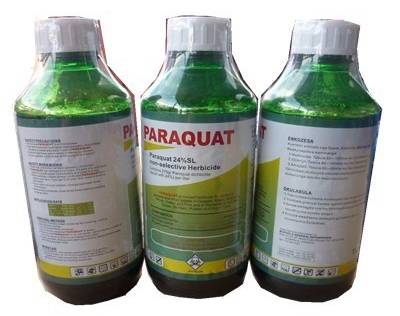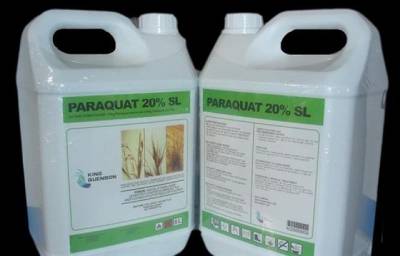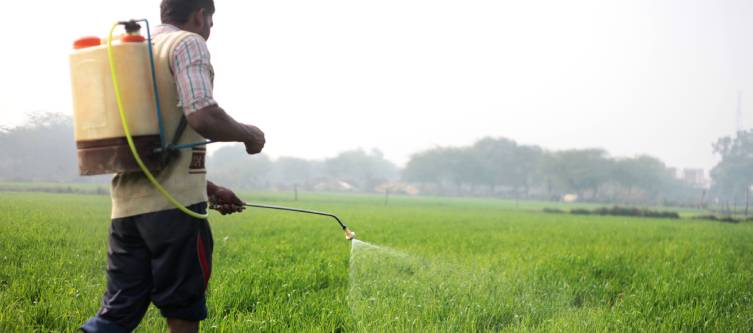Paraquat Herbicide Exposure
Paraquat Lawyer
Fighting for Compensation After Exposure to Paraquat
Paraquat is a non-selective herbicide widely used in commercial farming. In the United States, Paraquat use has increased more than 200% during the past ten years, although it has been banned in numerous countries all over the world. The connection between Paraquat and Parkinson’s Disease is causing many victims to turn to a Paraquat lawyer to learn their legal options. At Searcy Denney, we’re helping victims with claims across the country.
Herbicides are basically weed killers. Non-selective herbicides like Paraquat kill all plant, weed, or grass species to which it is applied. Selective herbicides are specially formulated to kill only non-desirable weeds or grasses, leaving behind the crop or plant you want to cultivate.
Paraquat is used to destroy all plant and grass growth on farms, typically between planting of desired crops. Once harvest is complete, farmers apply Paraquat to what remains, essentially obliterating everything above ground. Think of napalm. This practice eliminates time consuming and expensive tilling.
The problem is, Paraquat is lethally toxic to both humans and non-human species. As the current labeling states, “One Sip Can Kill.”

Numerous deaths have been linked to the accidental ingestion of Paraquat. As deaths mounted, the EPA issued a Mitigation Decision in 2017 mandating who could mix and apply the herbicide and implementing mandatory training for those individuals. But that’s too little, too late. The most insidious risk of Paraquat use cannot be found in EPA training or on the Paraquat labeling.
Our Paraquat Lawyer Explains the Dangers of Exposure
 Using Paraquat has been linked to developing early-onset Parkinson’s disease. Scientific studies have shown that Paraquat induces mid-brain changes that are the signature of Parkinson’s disease. Some who study Parkinson’s disease use Paraquat in the laboratory to induce these changes so they can be studied. It is almost impossible for the maker of Paraquat, Syngenta, with their scientific abilities not to have discovered this link.
Using Paraquat has been linked to developing early-onset Parkinson’s disease. Scientific studies have shown that Paraquat induces mid-brain changes that are the signature of Parkinson’s disease. Some who study Parkinson’s disease use Paraquat in the laboratory to induce these changes so they can be studied. It is almost impossible for the maker of Paraquat, Syngenta, with their scientific abilities not to have discovered this link.
One thing we know, Syngenta has never told the EPA that Paraquat can cause Parkinson’s disease. Syngenta has steadfastly claimed there is no link between Paraquat and Parkinson’s disease. The weight of scientific knowledge suggests otherwise.
Although Paraquat’s label warns against drinking the herbicide, it has never included a warning about the risk of Parkinson’s disease or any other neurological risk.
Review of a Paraquat usage map indicates it is most widely used where you would expect. Agriculture in the United States tends with some exceptions to be in flat, fertile farmland typically near a water source. The entire Mississippi River delta, California’s Central Valley, Kansas, Nebraska, Southern South Dakota, Southern Illinois and most Southern states seem where Paraquat is most widely used. Corn, wheat, soybeans, cotton and fruit orchards and grapes appear to be the crops most widely sprayed with Paraquat.
Paraquat Regulation
In 2017 the EPA substantially changed the conditions under which Paraquat could be purchased, mixed and applied. Before that though, the rules were much different. Paraquat has always been a restricted-use herbicide, meaning it could be sold only to someone who was a certified applicator.
 However, before 2017 anyone could mix and apply Paraquat if they were doing so under the “supervision” of a certified applicator, which means hundreds of thousands of farmworkers, none of whom had training or certification, mixed and applied Paraquat for years. In addition, overspray has unintentionally exposed agricultural workers who did not mix or apply Paraquat. These workers, according to published medical literature, were at more than twice the risk of developing Parkinson’s disease than the general public. Even had they received training, they would not be aware of the risk because Syngenta has never included a Parkinson’s risk in its labeling for Paraquat.
However, before 2017 anyone could mix and apply Paraquat if they were doing so under the “supervision” of a certified applicator, which means hundreds of thousands of farmworkers, none of whom had training or certification, mixed and applied Paraquat for years. In addition, overspray has unintentionally exposed agricultural workers who did not mix or apply Paraquat. These workers, according to published medical literature, were at more than twice the risk of developing Parkinson’s disease than the general public. Even had they received training, they would not be aware of the risk because Syngenta has never included a Parkinson’s risk in its labeling for Paraquat.
Paraquat and Parkinson’s Disease
Parkinson’s disease is a progressive disorder of the brain that affects one’s ability to move normally. As the disease gets worse, it can affect one’s cognitive abilities. Parkinson’s disease initially causes tremors of the hands, poor posture and slow movement. Later stages of the disease can cause the inability to walk, rigidity, instability and disorientation.
Technically, Parkinson’s disease is caused by death of brain cells in an area of the mid-brain known as the substantia nigra. Cell death results in losing dopamine production, which is essential for normal motor function. Administration of Paraquat in laboratory rats has proven to cause death of cells in the substantia nigra.
People of note who have suffered from Parkinson’s disease are Michael J. Fox, Muhammad Ali and Alan Alda. In fact, The Michael J. Fox Foundation submitted a letter to the Environmental Protection Agency (EPA) setting forth the enormous costs to the United States from Parkinson’s:
“The economic and emotional costs of living with Parkinson’s are too high to continue allowing the use of an herbicide so strongly linked to the disease. A person with PD spends an estimated $26,400 per year on their care, and Parkinson’s results in an annual economic burden of $19.8 to $26.4 billion in the United States. Many of those costs affect the government because of the significant number of Parkinson’s patients who rely on programs like Medicare, Medicaid and Social Security Disability Insurance.”
Despite having been studied for more than 300 years, the only objective and direct causes of Parkinson’s disease described in the medical literature are age and exposure to pesticides and herbicides. Surprisingly, smoking reduces the risk of development of the disease.
There is no cure for Parkinson’s disease. It is progressive and ultimately fatal. Treatments have been developed that mask symptoms but, nothing to date has been discovered to reverse the damage to brain tissue. If you’ve been exposed to the herbicide and have Parkinson’s disease, a consultation with a Paraquat lawyer can help you obtain compensation for your medical bills.
Are You an Agricultural Worker Who Was Exposed? Let a Paraquat Lawyer Evaluate Your Claim
Cases against Syngenta have been filed for farmers and agricultural workers who used or were exposed to Paraquat and developed Parkinson’s disease. The Florida personal injury attorneys at Searcy Denney are accepting nationwide cases for agricultural workers exposed to Paraquat and have been diagnosed with Parkinson’s disease. Contact us today to learn about your legal options if you believe you have been exposed to Paraquat.



